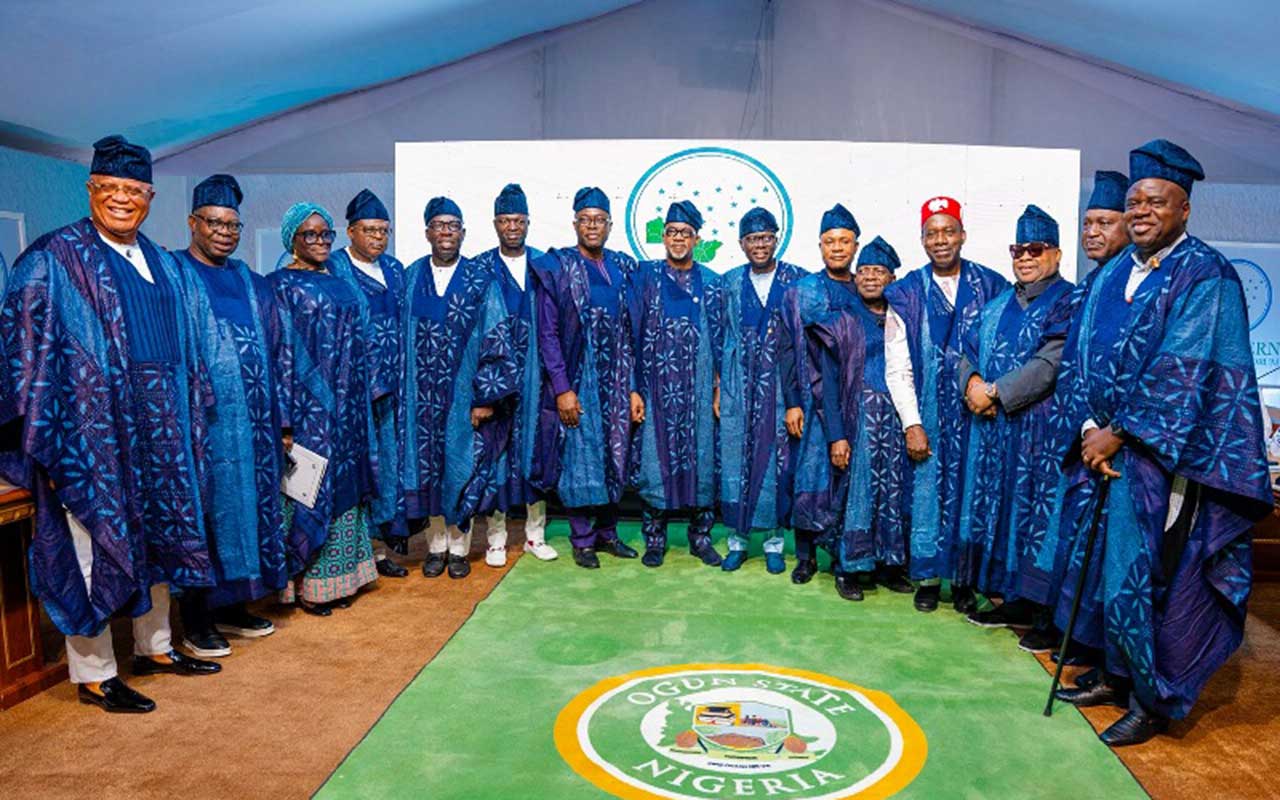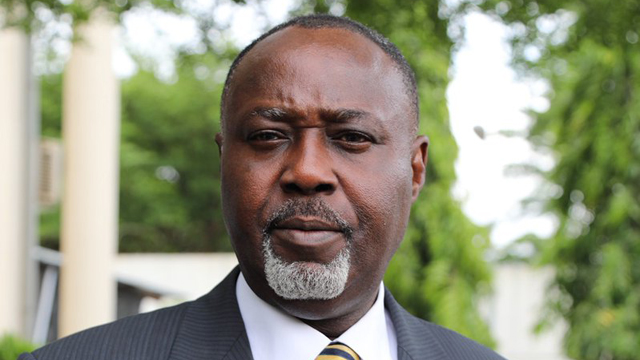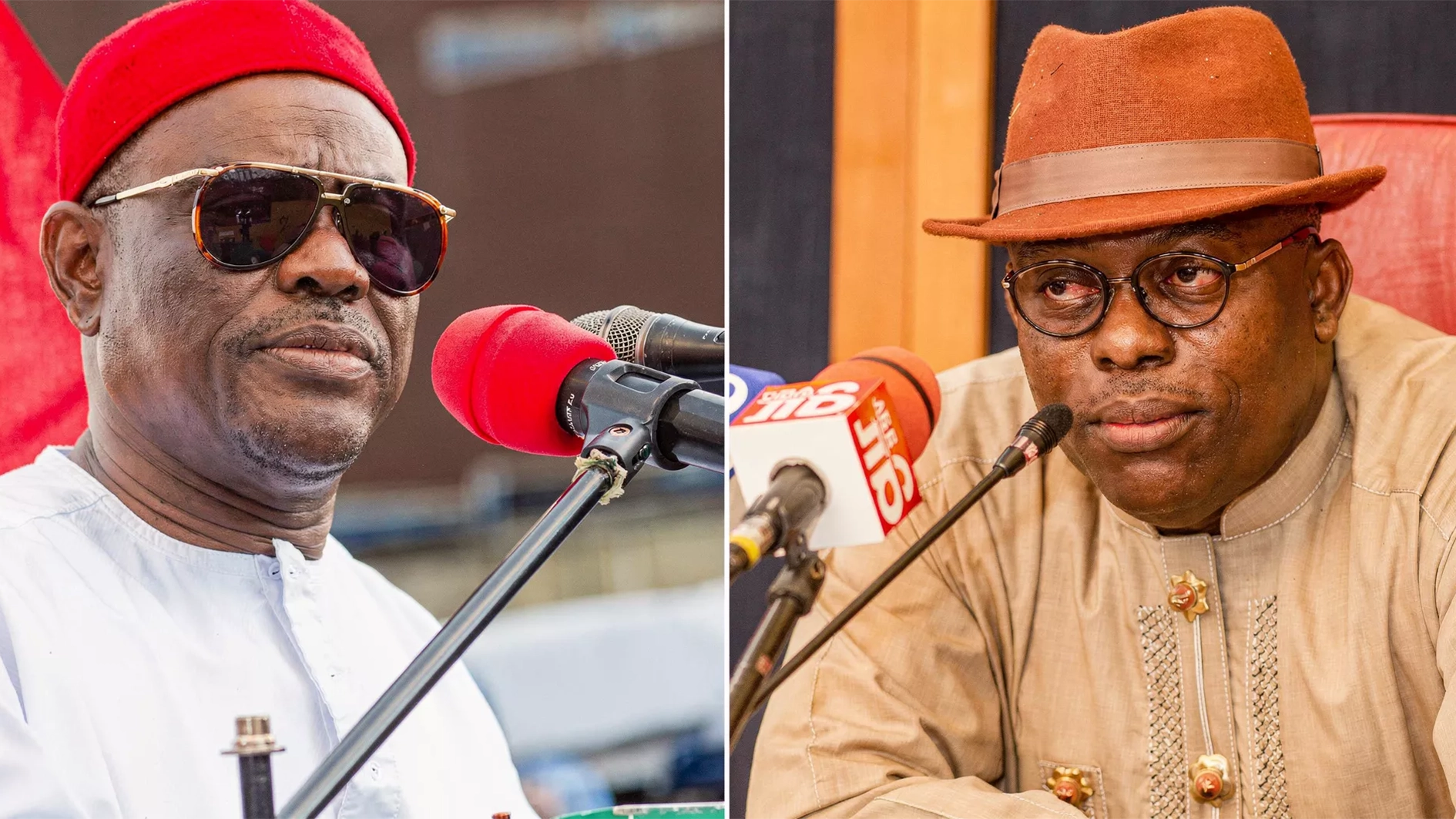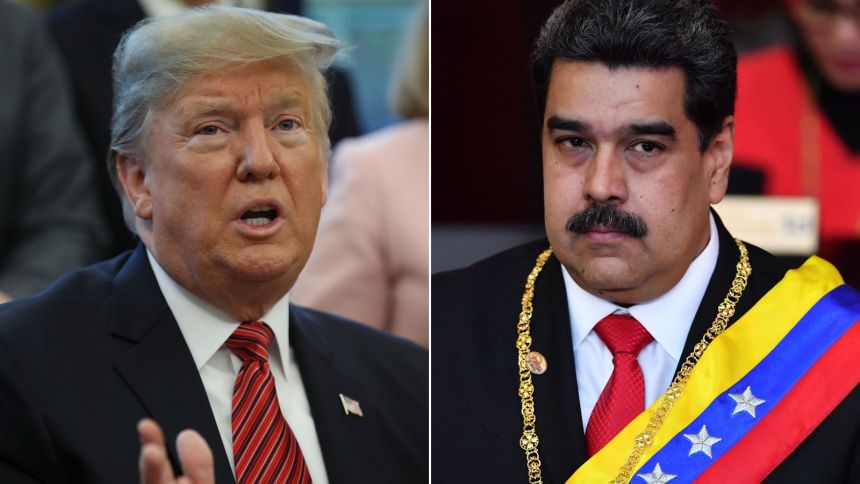
The election of Governor Dapo Abiodun of Ogun State as the Chairman, Southern Governors’ Forum (SGF) on June 24, 2024 has continued to generate debate among stakeholders as they interrogate the governor’s readiness to see the assignment as a task to uplift the entire Southern Nigeria in the socio-political and economic reckoning of the country, SEYE OLUMIDE writes.
With 17 states, Southern Nigeria is a multi-ethnic and culturally diverse area of the Federal Republic of Nigeria. Since its formation in 1900 after the addition of territories of the Royal Niger Company to the territories of the Niger Coast Protectorate, the region had a homogeneous administration in 1939.
In 1939, Southern Nigeria was split to Western and Eastern Nigeria. Western Nigeria was split into Western and Mid-Western Nigeria in 1963. All these regions were abolished on May 27, 1967 by State Decree No. 14 of 1967 (Creation and Transitional Provisions), which restructured the Federation of Nigeria into 12 states.
Though geo-political zones that make up Southern Nigeria – the East, West and South South – have had a development that could be said to be more progressive compared with what is obtainable in Northern Nigeria, it was only in 2000 that governors from the region decided to form an association tagged Southern Governors’ Forum (SGF) “to foster regional cooperation and unity among the 17 southern states in Nigeria.”
The chairmanship of this forum has rotated among the geo-political zones, with each leader providing the desired leadership that will ensure citizens enjoy the dividends of democracy.
In its early days, it took on issues related to resource control, devolution of powers and the famous debate on the onshore/offshore dichotomy.
On July 5, 2021, the SGF, under the late Arakunrin Rotimi Odunayo Akeredolu’s leadership, took two of the boldest SGF decisions: first it declared a ban on open grazing in their states, in a bid to provide a solution to the incessant herdsmen attacks and that Nigeria’s next president should be from the southern part of the country.
A communiqué issued at the end of that meeting, which held in Lagos, two months after a similar one in Asaba,also reaffirmed the Forum’s commitment to the unity of the country.
“The Forum reiterates its commitment to the politics of equity, fairness, and unanimously agreed that the presidency of Nigeria be rotated between southern and northern Nigeria and resolved that the next president of Nigeria should emerge from the south,” Akeredolusaid on behalf of the Southern Governors Forum (SGF).
Amid the challenges of insecurity, kidnappings, abduction from rampaging Fulani herdsmen and other internecine attacks, the governors re-emphasised the need for a state police.
Also, the governors, after the National Assembly passed Petroleum Industry Bill, rejected the proposed 3 per cent share of oil revenue to the host community and supported 5 per cent. They equally rejected the proposed 30 per cent share of profit for the exploration of oil and gas in the basins.
In fact, under the late Governor Akeredolu of Ondo State, the SGF enjoyed a bold and radical leadership, which political commentators and watchers of events in the forum described as its ‘ golden era’.
On June 24, this year, 17 governors from the South assembled in Ogun State unanimously elected Governor Dapo Abiodun to succeed the late Akeredolu as Chairman of the SGF, while Governor Charles Soludo of Anambra State was picked as his deputy.
Analysts have pointed out that though the forumis determined to elevate southern Nigeria and Nigeria by extension, Governor Abiodun of Ogun State would face many critical tasks as the Chairman.
Although Abiodun has just three years (2024-2027) to lead and coordinate the affairs of the forum, how he would navigate through his new assignment alongside his responsibility of governing Ogun State has become an issue of public discourse.
There are insinuations in certain circles that Abiodun’s hands may have become too engaged to allow him the needed concentration on his new assignment; even though some others view his new task as nothing other than giving him a political edge and prestige above his two predecessors, Senators Gbenga Daniel and IbikunleAmosun.
Unlike Akeredolu, who combined the leadership of both the SGF and Southwest Governorship Forum during one of the most turbulent periods in the Fourth Republic, when the Southern and Northern parts of the country were sharply divided politically, Abiodun may likely face more challenges over the excruciating economic policies of the Federal Government under the incumbent administration led by President Bola Ahmed Tinubu.
While Akeredolu took advantage of the sentiment that the North could not be jostling to retain power after eight straight years to mobilise support for Southern presidential candidates, especially Tinubu, in 2023, Abiodun must work extra hard to douse the anger against the economic policies of the current administration, which experts say will yield the expected benefits in due course.
Akeredolu was also credited for being very vocal about the activities of armed Fulani herdsmen and their persistent clashes with southern farmers during the Buhari administration.
The former president was severally accused of not taking decisive actions against rampaging herdsmen in the southern part of the country because they were allegedly his kinsmen. On this, observers are watching to see how Abiodun would tread.
The National Assembly is currently discussing a number of bills that may possibly restructure the current governance system in Nigeria, which appear to favour the North against the South. It is incumbent on the current SGF leadership to ensure that all the southern federal lawmakers are properly coordinated and given the needed support towards achieving appropriate constitutional amendments to ensure true federalism.
The bills include the State Police Bill, Ranching Bill, Regionalism Bill, ongoing discussion on resource control law, among others.
So, the governors of the 17 southern states would need to be more in tune with the federal lawmakers to be able to work harmoniously to get these bills not only passed but also signed into law by the president.

Abiodun’s ability to mobilise and galvanise support for a Southern president in the face of weakened economic fundamentals, which led the country’s inflation to reach a 24-year high of 31.7 per cent in February 2024, combined with sluggish growth, has pushed millions of Nigerians into poverty.
Between 2015 and 2022, growth rates has decreased and GDP per capita flattened, driven by monetary and exchange rate policy distortions, increasing fiscal deficits due to lower oil production and a costly fuel subsidy programme, increased trade protectionism, and external shocks such as the COVID-19 pandemic.
The World Bank, after a recent assessment of the economy, noted that despite having the largest economy and population in Africa, Nigeria offers limited opportunities to most of its citizens.
The poverty rate is estimated to have reached 38.9 per cent in 2023, with an estimated 87 million Nigerians living below the poverty line — the world’s second-largest poor population after India.
Political analysts also imagined how Abiodun would be able to navigate the landmines of political affiliations, which reached its nadir in the last administration, especially with the Peoples Democratic Party (PDP) giving its presidential ticket to the former vice president Atiku Abubakar against the Southeast, the only zone yet to rule Nigeria on PDP’s platform since 1999.
They argue that the current state of affairs in the country might make it extremely difficult for the incumbent SGF chairman to carry all his southern counterparts along, especially those that are not members of the All Progressives Congress (APC).
In 2021, after southern governors mooted the idea of power shift to the south in its ‘Asaba Declaration’, which was hosted by the then Delta State governor, Senator Ifeanyi Okowa, but Okowa went on to become a running mate to a presidential aspirant from the north in 2022. (This seemed not to be in line with the southern governors’ position).
But the challenge of political affiliations should not be paramount in the region because Nigeria will develop faster if states within the forum work together to create an economic region.
Economic cooperation between states in the region is essential, especially with common boundaries, not creating economic barriers. This is the way to go in terms of development and there is no need for mutual suspicions between the north and the south.
Only recently, Governor Soludo decided to commence the construction of a superhighway linking Imo and Anambra states. Governor Soludo will dualise this very strategic road up to the boundary between the two states. Just “imagine how the connection between Imo and Anambra will be if the Imo State governor takes up the dualisation of its own end of this road” retorted an aide of Soludo.
The communiqué issued by the 17 southern governors at the end of their summit in Abeokuta showed clearly that the governors are purely focused on development.
Despite the current economic downturn, the forum, in its communiqué, commended the laudable economic recovery reforms and policies of President Tinubu and the implementation of the Renewed Hope Agenda (RHA), just as it reaffirmed their support for the president in his unwavering resolve to reposition the country and build a great future for the citizens.
Irrespective of the vilification the Federal Government received over the ongoing construction of the Lagos-Calabar Coastal Road, the forum expressed the belief that the project, which cuts eight states in the region, was well conceptualised.
The forum noted that the project would create employment in the construction industry ecosystem, boost productivity by drastically reducing travel time, promote tourism and open up and integrate all the Southern States to more investment opportunities.
According to a political observer who didn’t want his name mentioned, the South-South region will want to support President Tinubu’s re-election because of the project with the understanding that another president from the North may jettison it.
The southern governors released what they referred to as the Southern States Development Agenda (SSDA) to “foster trade and investment, sustainable growth and development, economic prosperity, social harmony, and food security for the region.”
The SSDA would create a platform where the following organisations will work together: individual states’ Investment Promotion and Facilitation Agencies, the Nigeria Investment Promotion Commission (NIPC) and various multilateral agencies.
The forum also advocated that the Federal Government should rehabilitate, repair and reconstruct Trunk A roads and transfer certain roads to states that have expressed interest in taking them over. This has been a recurrent demand by some of the southern states.
The southern governors have other big plans. The forum plans to commission a regional multimodal transport master plan that would enhance “connectivity by rail, road, air, and water to enhance regional connectivity and facilitate the interstate and intra-region ease of doing business.”
Another agenda of the Abiodun-led forum is targeted at addressing the inadequate power supply in the region.
“To achieve 90,000 MW of electricity to adequately serve the estimated 90 million people in the Southern Region (using the rule of thumb of 1,000 MW per 1 million population), member states were encouraged to take advantage of the recent constitutional amendment that now allows states to regulate, generate, transmit and distribute electricity whilst also considering renewable sources of energy. The forum also noted the pressing need for an alternative power infrastructure grid to reduce the impact of grid collapse in the region,” the communiqué noted.
Other resolutions of the forum that signposted the direction it wants to go during Abiodun’s tenure include advocating for the creation of state police against the success of community-based regional security outfits that have significantly helped intelligence gathering.
The forum also harped on fiscal federalism, just as it also discussed the issue of solid mineral exploration and exploitation, which today remains on the exclusive list in the constitution.
It is, however, noteworthy that when Abiodun took up the mantle of leadership of the forum, he didn’t mince words as to what he aspires to achieve and how he plans to reposition the forum for the utmost benefit of the entire South; without necessarily getting entangled in any unhealthy political rivalry with the northern region of any particular ethnic nationality.
Although he didn’t make this clear in his acceptance speech, the communiqué issued after the Abeokuta meeting pointed to the direction the forum would follow in the next three years under his leadership.
Meanwhile, aside from the above issues, residents of Ogun State expect him to deliver good governance and foster the development of the state to position it as the preferred destination for investors.
Many residents of Ogun believe that the incumbent governor has not done enough; hence he should focus on the responsibilities for which he was elected.
Another critical issue that may also affect the governor’s performance is how he would play the 2027 politics in Ogun State, as that is the year he would be completing his two terms of eight years in office.
Will he decide to leave politics after completing his second term in 2027 and return to his private business or will he busy himself with the politics of who will succeed him in office? For now, either Ogun West or Ogun Central senatorial districts would want to produce his (Abiodun) successor. Nonetheless, some elements in Ogun East are also getting set to contest for the governorship seat in 2027. If Abiodun decides to aspire for the Senate just like Daniel and Amosun did after serving out their two terms as governors, the new SGF chairman would likely slug it out with Daniel for the APC ticket.
It is said that the trio of Abiodun, Daniel and Amosun may renew their political rivalry as from next year. This would likely distract the incumbent SGF chairman from living up to expectation.
The SGF, it is argued, should do what is absolutely necessary to reduce the poverty level in the region. Currently, poverty headcount rate in Nigeria is still very high.
The lowest poverty rates are in the South and South-Western states. In Lagos, this figure equaled 4.5 percent, the lowest rate in Nigeria. This is the dream and it depends on Abiodun and his team in SGF to achieve it for the region.
Speaking on how the new SGF Chairman plans to run the organisation in the next three years, his Special Adviser on Media and Communications, Mr. Kayode Akinmade, said the forum’s secretariat in the Federal Capital Territory (FCT), Abuja, would be sustained and upgraded in terms of state-of-the-art facilities for effective and efficient service delivery.
He also said Governor Abiodun is looking at addressing areas where the Southern region seems to have been operating at disadvantage to the North especially in areas of water resources, agriculture and the revamping of moribund dams across the Southern region.
He said Governor Abiodun is already putting plans in place to ensure that all Southern governors operate on a common front in whatever developmental policies that would benefit the South, adding that the forum under his (Abiodun) leadership will ensure that the 17 southern states, henceforth, complement one another in areas of support, development and governance.
According to him, “a kind of synergy will be adopted such that each of the participating states maximises its areas of potential and complement those lacking in such areas.
“For instance, the incumbent leadership of SGF would make deliberate policies to improve agriculture and security in the South. This will lead to ensuring that the herders/farmers crises and food insecurity would be addressed. Governor Abiodun’s determination is to also use the position to ensure that the South is able to feed itself and not totally rely on agricultural products from the north including livestock.”
Akinmade also said the Abiodun-led SGF is looking forward to ensuring that the south takes maximum advantage of its mineral deposits to the utmost benefits of the region.
The governor’s aide also dismissed the fear that Abiodun may be too engrossed with governance in Ogun to effectively lead the forum. “This can never be a hindrance at all.”
In another reaction, a former federal lawmaker from Rivers State, Bernard Mikko, even though the SGF is not specifically mentioned in the 1999 Constitution, Section 4 of the same Constitution allows for the Freedom of Association, which gives room for the governors to associate towards the development of their states.
He said this is a great opportunity for the Abiodun-led SGF to tap into the administration of President Tinubu with the aim and objectives of attracting cogent development to the South. “A lot of opportunities abound in the south, which have not been tapped into for development.”
Meanwhile, a chieftain of Ohanaeze, Chief Goody Uwazurike, said the present SGF should crave for good examples such as the late Akeredolu did while he led the forum.
He urged Abiodun to use the position to address issues of security and agriculture in the south.
The Guardian learnt that the incumbent leadership of the SGF is looking forward to engaging services of experts and professionals from the various ministries in their respective states to develop a joint agenda for the region.






